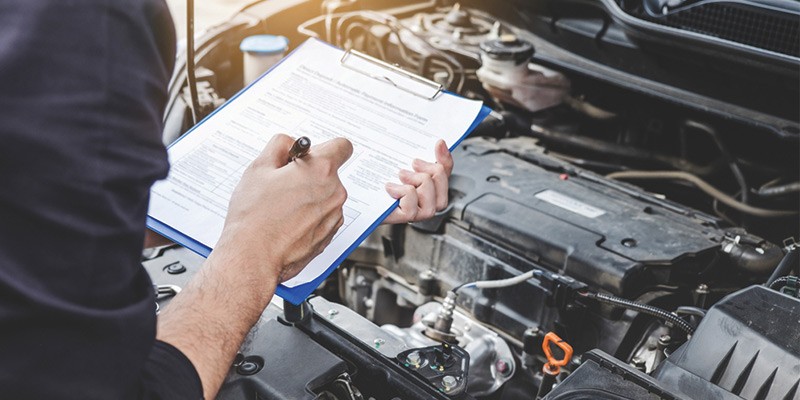Being a car owner nowadays is no joke. There are so many things to take care of when it comes down to maintaining it and ensuring that you can use it for as long as possible. Things like checking maintenance, replacing parts regularly and also maintaining your friend in town – the car engine, are the things that need to be done on a regular basis if you want to avoid dealing with a major problem. As much as you want the best of everything, it’s never easy to make sure everything runs smoothly but one has to do this because you never know when something serious pops up.
Overheating Of the Car Engine
A car with overheating problems is not just a pain in the neck – it can be dangerous. With some patience and the right tools and parts, you can diagnose the root cause of your car’s overheating problems and through Car Repair make it run smoothly again.
Overheating is a big problem to a car engine because overheating can cause some serious damage. Even worse, it can lead to the entire engine failing which would require you to spend hundreds or even thousands of dollars on a new engine. That’s why car experts and professional mechanics spend so much time talking about how to deal with an overheating car engine.
If your car overheats and the engine temperature gauge on the dashboard is in the red, this means your car’s coolant is boiling because it isn’t circulating properly. This is a potentially very dangerous situation that could lead to serious damage if not taken care of right away. If you find your vehicle overheating, you need to pull over and identify and fix the problem as soon as possible.
Causes of Car Engine Overheating
Overheating of the engine is a serious problem. It can lead to damage of an otherwise good motor. This article discusses various causes of overheating, and offers tips on how you can take care of your car and prevent engine overheating when things get hot.
- Coolant Reservoir Leakage
One of the most common problems with overheating is a leak in your coolant system. This can be caused by a cracked or loose hose, or a leaky radiator cap.
The first step is to check your coolant level and make sure it’s full. If that checks out, then remove the radiator cap and look inside for any signs of leakage. Your next step would be to inspect all hoses for cracks or leaks; these are usually easy enough to spot as they’re made from rubber or plastic. You may need to get under the car and have a look at them from underneath, but this should be relatively straightforward if you know what you’re looking for.
If you find that one of your hoses is leaking then all you will need to do is replace it (or repair it if possible). If there are no obvious signs of leakage then it could be time to take your car into a mechanic for some diagnostic work so they can run tests on the cooling system and try figure out what’s causing the problem.
- Water Pump Malfunction
The water pump is a very important part of your car’s cooling system. It pumps fluid through the engine block and into the radiator, where it cools down before returning to the engine. The water pump is driven by a belt that runs off the crankshaft pulley, so it works whenever you start your car. If the water pump stops working, your engine will overheat.
If you suspect that your water pump is malfunctioning, here are some things to look for:
Radiator cooling fan doesn’t turn on when thermostat opens: If there is no air movement through the radiator when you step on the gas pedal or if there isn’t enough air movement at idle speeds that can be an indication of an overheating problem. This is especially true if your engine temperature gauge rises rapidly when driving in stop-and-go traffic.
- Radiator Cap Leakage
A radiator cap is designed to control the pressure within your engine as well as help cool down the engine. It also regulates how much coolant flows through the system. The pressure within your vehicle’s cooling system depends on several factors including weather conditions and driving style. When this pressure increases too high, it can cause your radiator cap to leak. This is one of the most common causes for an overheating car engine.
The radiator cap is one of the most important parts of a car’s cooling system. It covers the radiator, which is where the coolant circulates through your engine. The cap helps to regulate the flow of coolant into and out of the radiator, making sure that it doesn’t overheat.
Over time, radiator caps can crack or become damaged which will cause them to leak coolant into your engine. If you notice coolant leaks near where your radiator cap is located, then it might be causing problems with your cooling system. A leaking radiator cap of your Audi Repair can cause heat damage to other parts of your engine such as pistons and valves which may lead to more serious problems like overheating or even failure of these parts completely.
- Low Coolant Levels
Your engine’s cooling system is designed to maintain operation within normal temperature ranges. If the coolant level drops too low, the engine can overheat.
If you notice that your vehicle has been running hotter than usual, check the coolant level. If it is low, add coolant immediately and drive slowly (at least 20 mph) to a service facility for further evaluation.
If you drive when your vehicle is overheated, damage to your engine may occur that could result in costly repairs or replacement of the vehicle’s engine.
If the car engine is overheating, the first thing to check is that there is enough coolant in the system. Low coolant levels can lead to overheating and a blown head gasket.
To check the coolant level in your vehicle, locate the radiator cap on top of your radiator. The cap will be located near one of the hoses on top of your engine block. Turn off all accessories such as air conditioning and defroster before removing the cap. If you see any air bubbles coming out of your radiator when you remove your radiator cap, then you may have a leak somewhere in your cooling system – this should be inspected by a professional mechanic.
- Broken Radiator Fan
When a radiator fan fails, it can cause the engine to overheat. A broken fan can be caused by a number of factors, but is most often due to age and wear. The fan blade itself may be cracked or warped, making it unable to move air through the radiator core. In addition, if the water pump is faulty or damaged, it may not be able to move coolant through the engine fast enough to keep it from overheating.
If your car engine is overheating and you suspect it’s due to a broken radiator fan, you should have your vehicle checked out by an auto technician as soon as possible. If your car has been overheating for several days or more, this could lead to major engine damage that will require significant repairs or even replacement of the engine altogether.
- Radiator Leakage
If you are noticing a loss of coolant, it is likely that there is a leak in the radiator. This can be caused by a crack or a hole on the radiator itself, but it could also be caused by a crack or hole in the water pump seal. If you notice any oil or coolant leaking from your car engine, it is important to have your vehicle checked out immediately.
The main purpose of the radiator is to dissipate heat from the engine and provide cool air for proper combustion and fuel efficiency. Radiators are made up of thin finned tubes that carry coolant through them and this coolant transfer’s heat away from an internal combustion engines cylinders and heads into the radiator fins where it becomes heated air. This heated air then travels through an exhaust system where it exits out of your vehicle’s tailpipe.
A leaky radiator will allow heat to escape from the engine which can cause damage if left unchecked for too long. If your vehicle has been overheating lately, check the radiator first before spending money on other parts like spark plugs or hoses that may not be at fault for causing your problem. Follow the instructions on How to Maintain Audi Cars Properly in order to avoid facing any problem.
- Cooling System Not Circulating
A car’s cooling system is made up of several parts: the radiator, water pump, thermostat and hoses. The radiator is a heat exchange component that transfers heat from the engine block to the air flowing through it by convection, eliminating the need for a mechanical fan.
The water pump circulates coolant through the engine, heater core and radiator when you start your car. The thermostat maintains a suitable engine temperature by regulating flow of coolant through the engine. Cooling system problems can cause your car to overheat.
Coolant leaking from the hoses or radiator indicates that there is a problem with any of these parts. If you hear squealing sounds from under your hood, turn off your engine immediately as it indicates that there is an issue with your belt or pulley system.
- Thermostat Malfunction
The thermostat is a device that regulates the temperature of the engine coolant. It’s located in the engine block, near the water pump. The thermostat helps maintain a constant temperature by opening and closing as needed.
A malfunctioning thermostat can cause an engine to run too hot or too cold. If it doesn’t open or close properly, this may cause issues with the cooling system and result in overheating.
The most common cause of thermostat failure is clogging or sticking due to deposits in its channels. These deposits are often caused by corrosion or scale buildup from hard water, which can build up over time and make it difficult for the thermostat to close fully when needed. The result is that your engine may not be getting enough coolant flow — which could lead to overheating problems.
How to Deal With an Overheating Car Engine
Overheating is a serious problem that can lead to engine failure. It’s important to know what steps to take if your car overheats so you don’t risk permanent damage to the engine.
It is very important to learn how to handle a car engine that is overheated. You never know when it will happen and you need to know what to do in case it does.
The first thing that you need to do is find out why the car engine is overheating in the first place. If it looks like something simple then you can fix it yourself but if there are any other issues with the car then you should bring it into a mechanic as soon as possible.
Once you have fixed the issue with your car engine, then you need to make sure that it does not happen again. You can do this by checking your fluids regularly and making sure that they are at the correct levels. You should also make sure that there are no leaks anywhere on your vehicle since leaks will cause your engine to overheat quickly.
You should also make sure that everything else inside of your vehicle is working properly including all of its lights, tires etc… This will help keep your car running smoothly which will reduce stress on your engine so that it does not overheat as much as it would without these things working properly too!
If your car is overheating, here are some things you can do:
- Don’t drive until the engine cools down. If it’s hot outside, park in the shade or under an overpass and turn off the air conditioner.
- Turn off nonessential accessories (such as power windows and lights).
- Release the pressure by cracking open a window or door vent slightly, and then close it when steam begins leaking out. This will release some of the pressure in the cooling system so it can cool down more quickly.
- Turn off the engine if it hasn’t cooled down after 15 minutes of rest; doesn’t start it again until it’s cooled down.
Remember, the best approach is to take preventative measures by changing the thermostat and flushing the engine and observing all Car Maintenance Tips. However, if your car does overheat, don’t ignore it. Take precautions to reduce the risk of any damage to the cooling system, and always be sure to refill with coolant. When you do get it back on the road, head straight for a mechanic for a full inspection. Your car and wallet will thank you.












